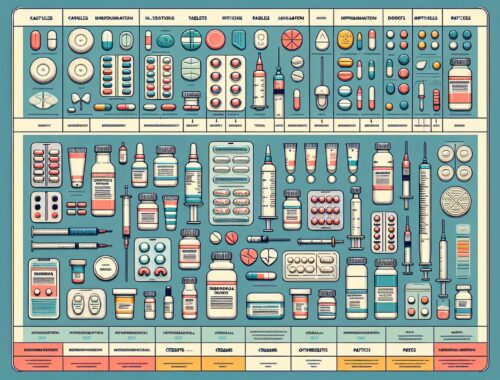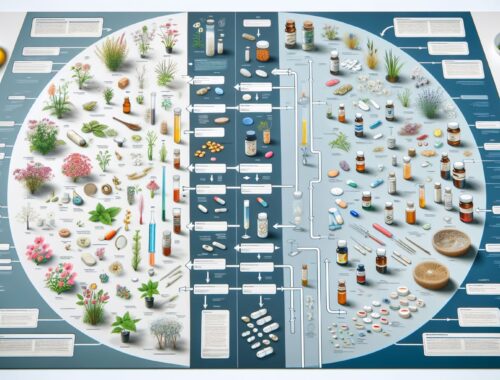
The Different Types of Medicines
Medicines play a vital role in improving our health and well-being. From common ailments to chronic diseases, there are various types of medicines available to help manage, treat, or cure specific conditions. In this article, we will explore the different types of medicines and their unique characteristics.
Introduction
Medicines are substances that have therapeutic properties, intended to prevent, alleviate, or cure diseases. They are formulated using active ingredients combined with other substances known as excipients to deliver the medication to the patient’s body in a safe and effective manner. Medications can be obtained either over-the-counter (OTC) or through a prescription from a healthcare professional.
Body
1. Over-the-Counter (OTC) Medicines
OTC medicines are available for self-medication without a prescription. They are commonly used to treat minor ailments such as headaches, colds, allergies, and mild pains. These medicines undergo stringent testing and are considered safe when used as directed. Examples of OTC medicines include pain relievers, cough syrup, antihistamines, and topical creams.
2. Prescription Medicines
Prescription medicines, also known as prescription drugs, require a written order from a healthcare professional such as a doctor or a licensed prescriber. They are typically used to treat more severe conditions that may require careful monitoring, higher dosages, or specific instructions to ensure maximum effectiveness and safety. Prescription medicines include antibiotics, antidepressants, antipsychotics, and chemotherapy drugs.
3. Herbal Medicines
Herbal medicines, also called botanical medicines or herbal remedies, have been used for centuries to treat various ailments. These medicines are derived from plants or plant extracts and are believed to have therapeutic properties. Examples of herbal medicines include ginseng, turmeric, aloe vera, and chamomile. However, it is important to note that not all herbal medicines are regulated, and their safety and efficacy may vary.
4. Biological Medicines
Biological medicines, also known as biologics, are derived from living organisms such as cells, proteins, genes, or tissues. These medicines are typically developed through biotechnological processes, and they target specific disease mechanisms. Biologics are commonly used to treat conditions like rheumatoid arthritis, cancer, and autoimmune disorders. Due to their complex structure, biologics are usually administered through injection or infusion.
5. Generic Medicines
Generic medicines are pharmaceutical equivalents to brand-name medicines. They contain the same active ingredients and are designed to be bioequivalent, meaning they produce the same therapeutic effect in the body. Generic medicines are generally more affordable than their brand-name counterparts, making them accessible to a wider population. However, they also undergo rigorous testing to ensure their safety, quality, and effectiveness.
Conclusion
Medicines come in various forms and types, catering to diverse medical needs. From over-the-counter medicines for minor ailments to prescription drugs for severe conditions, each type serves its unique purpose in promoting health and alleviating illness. It is essential to seek professional advice and use medications responsibly to ensure optimal outcomes and minimize risks. Remember, proper understanding and adherence to medication guidelines are crucial for reaping the benefits that these medicines provide.
You May Also Like

The Different Types of Medicines
March 13, 2024
The Different Types of Medicines
April 3, 2024

